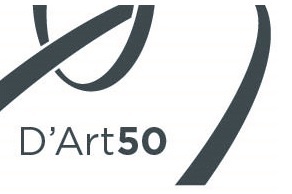In its ground-breaking 140 page report, D'Art 50 Supporting Culture: The governance and operations of public agencies, IFACCA has analysed data collected from about a quarter of the world's arts funding agencies. While the full final report was only made available to its national members, IFACCA is publicly sharing the key findings.
Since its inception in 2001, IFACCA has received many enquiries from its members regarding the models of governance and operations developed by government agencies that support the arts and culture at a national level. Such information is extremely important in enabling agencies to understand and compare their own approaches.
In 2016, IFACCA conducted its first ever in-depth analysis of the activities of 75 member organisations. The research for this project was carried out in two parts: governance and operations (including financial information). A preliminary report, providing an analysis of the first survey about governance, was circulated to members in April 2016. Analysis of results from the second survey was combined with the first part to create a Draft D’Art, which was distributed to members at the 7th World Summit on Arts and Culture and the CEO Leadership Seminar in October 2016. Since then, we have updated minor aspects of the contents and added an executive summary.
One of the objectives of this iterative process was to continue collecting and updating information in order to monitor changes in national arts funding organisations. As agencies' activities continue to evolve, it will be necessary to continue to update the information in the future.
For the purpose of the research, IFACCA defines an arts council as an organisation that has been delegated responsibility by government for developing the arts or culture through funding and/or promotion. A ministry is defined as a specialised organisation or department that has responsibility for administering a specific part of government and reports to the president or prime minister of a government.
There were 56 responses to the survey for Part One and 43 for Part Two. In both cases, approximately two thirds of the responses were from arts councils and a third from ministries of culture or other ministries responsible for arts and culture. Approximately 30 percent of responses to both surveys were from Europe, 23 percent from Africa, 20 percent from the Americas, 15 percent from Asia, and 12 percent from the Pacific (including Australia and New Zealand).
Key findings:
- The earliest formed arts councils (that are IFACCA members) are the Swiss Arts Council/Pro Helvetia established in 1939, followed by the Arts Council of Great Britain in 1946.
- Over 90 percent of the agencies reported that they serve the following sectors or disciplines: music, theatre, dance, visual arts, literature and festivals.
- Agencies’ most common functions are: promoting public understanding and appreciation of the arts (89%); providing financial support to organisations (86%); providing financial support to individuals (80%); and coordinating international cultural relations, exchanges and market development (80%).
- 71 percent of the responding organisations have a governing body. All responding arts councils have a governing body, however they have different appointment processes, some of which involve the general public or culture sector.
- The average level of government influence over the decision-making of the governing body is 5.1 (1 being no influence and 10 high influence). The influence level is higher for ministries than it is for arts councils. Regionally, the Pacific has the lowest influence level.
- The five skills most commonly required to serve on a governing board are: artform, governance, arts education, cultural economy and legal.
- Gender balance in governing bodies is required by law or tradition in 60 percent of the agencies.
- 63 percent of the responding agencies provide members of the governing body with a fee, allowance or salary.
- The average number of staff for arts councils is 123 while for ministries it is 532.
- Half of the agencies reported that their number of staff has increased in the last five years. In one quarter it has decreased, and in the other quarter it remained the same.
- The main fields for which the organisations have teams or departments are: artform (disciplines), grants, research, international and media/communication.
- All responding organisations produce an annual report and 75 percent make it public.
- Responses to information about the size and trends in budgets were too diverse to analyse meaningfully.
- All responding agencies receive annual funding from the national government. About one quarter receive multiyear funding; about one quarter were set up with an initial endowment from the national government; and just under one quarter receive revenues derived from a special tax, levy or other mechanism.
- More than half of the responding agencies receive revenue from one or more of the following: actively seeking revenue from non-government sources; donations from non-government sources (individuals, corporations and /or foundations); or self-generation of revenue.
- 86 percent of the organisations provide financial support for arts or culture activities.
- 95 percent of the organisations that provide funding programmes support art organisations and individuals (including groups); and 49 percent fund sub-levels of governments (such as regional, state, province or municipal).
- The most common means by which funding is organised is by discipline or sector (78%), followed by function (62%).
- 68 percent of the agencies use peer assessment, with peers selected by various processes.
- 54 percent of the agencies use an online grant management system.
- More than 75 percent of the agencies assess applications against set criteria; and the same percentage require grant recipients to submit a report on the project for which they were funded.
Sarah Gardner
Executive Director
International Federation of Arts Councils and Culture Agencies


